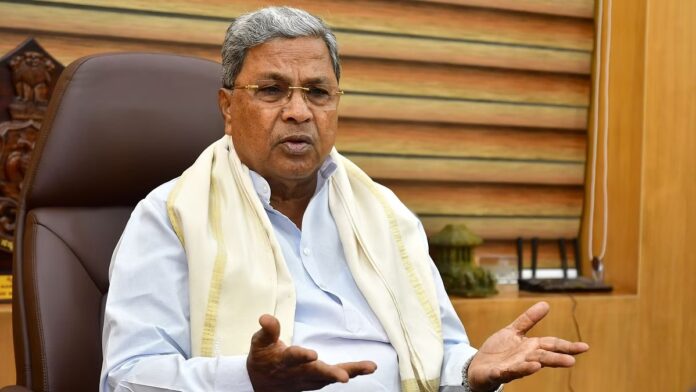By Syed Khalique Ahmed
NEW DELHI: Karnataka Chief Minister Siddaramaiah has announced plans to present the findings of the socio-economic and educational survey (caste census) to the state cabinet and implement its recommendations. This positions Karnataka as the second state, following Bihar, to release a caste census report.
The report, submitted to the Chief Minister in February 2024 by K. Jayaprakash Hegde, chairman of the Karnataka State Commission for Backward Classes, is the result of a survey initiated in 2015. Siddaramaiah originally tasked the commission with this survey during his first term, but progress stalled after he lost the 2018 assembly elections, particularly under the BJP government, which opposed the caste census. However, efforts resumed after Siddaramaiah reclaimed the Chief Minister position in May 2024.
When Hegde submitted the report, Siddaramaiah refrained from publicizing its findings or committing to its implementation, likely due to pressure from some Congress leaders. Yet, with Congress leader Rahul Gandhi advocating for a nationwide caste census and integrating it into the party’s election manifesto, Siddaramaiah has faced increasing pressure to release the report and act on its recommendations.
The leaked data shows that Scheduled Castes (SCs) make up 19.5% of Karnataka’s population, with Muslims at 16%, Lingayats at 14%, and Vokkaligas at 11%. Within the Other Backward Classes (OBCs), the Kuruba community alone accounts for 7%, contributing to the OBCs’ total of 20%.
The last comprehensive caste census in India occurred in 1931 during British rule, and while caste data was collected in the 2011 census, it was never made public. This data is crucial for formulating affirmative action programmes aimed at uplifting marginalized and historically suppressed communities. The absence of empirical data on these populations has hindered the development of effective policies. Although political parties cite various reasons for not collecting this data, the primary issue has been a lack of political will, as major parties like Congress and BJP are predominantly led by upper castes, who often resist such initiatives that could undermine their interests.
The demand for a caste census has gained momentum, particularly with the rise of leaders from backward communities in regional politics. Bihar, under Chief Minister Nitish Kumar of the OBC Kurmi community, was the first state to publish caste data, revealing that 85% of its population belongs to OBCs, Dalits, and Muslims etc while upper castes comprise only 15%. Despite this, over 50% of government positions are held by individuals from dominant castes, fuelling calls for proportional representation.
Recently, Siddaramaiah highlighted the necessity of the caste census to identify backward and deprived communities. For Rahul Gandhi and opposition allies, advocating for a caste census is seen as a way to challenge the BJP by highlighting growing inequalities and the concentration of resources among a small elite. According to an Oxfam India report from 2023, 60% of the country’s wealth is held by just 5% of the population, primarily corporate elites.
As the BJP has solidified its support among Hindu communities through its Hindutva agenda, opposition leaders believe that addressing the caste census issue and advocating for proportional reservations in government jobs and schemes could help diminish the BJP’s electoral base. If Congress successfully pursues this agenda, it could benefit all marginalized groups, including Muslims, who have faced significant challenges since the BJP came to power in 2014. Political analysts suggest that a nationwide caste census could undermine the BJP’s broader political project, which is why the party has historically opposed such initiatives, even as some NDA constituents support the idea. However, their influence within the NDA remains limited.





